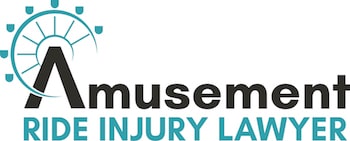Do I Have a Personal Injury Case?
Many people get injured every day, and many personal injury cases that occur in the summer months are from amusement parks, water parks, and fairs or carnivals. Many times people get injured at these places and think that they have no case and it is not even worth it to call an attorney because they signed a waiver. Sometimes it does not matter if a waiver was signed, because there may be things that it does not cover.
Questions To Ask
If injuries occur at these types of places, it is important to hold whoever is at fault responsible for the accident. Reported accidents and lawsuits can make parks change some of their safety precautions, be more careful about preventing injuries, and make them pay compensation for injuries. Although every case is different, these are questions to ask yourself if you were injured and do not know if you have a personal injury case.
Did you physically injure yourself, or suffer bodily harm?
If your property was damaged, this is not considered personal injury. Personal injury is harm or loss to one’s body. For example, if you lost an arm or broke a rib. In some circumstances, personal injury can also be emotional pain. For example, if you suffered PTSD or some psychological trauma. In the case of an amusement park ride accident, if you were ejected from a ride or fell out of the ride, but were not injured, it is not a personal injury situation. Also, if you were in a ride accident and a piece of metal flew off of the ride but did not hit you, this is not personal injury, because the accident did not injure you. Lastly, if you were in a car accident, for example, and your car was damaged, but you did not get hurt, this is property injury rather than personal injury.
Was your injury caused by someone else’s negligence or the malfunction of something?
Negligence means that someone who was responsible for doing something, did not do so or was being careless. If the person in question failed to act with the level of care that a reasonable person is expected to act under the circumstance, they are liable. Negligence claims can be established by proving that the person in question had a legal duty of care, failed to perform that duty, this failure of duty was the cause for the injury, and the harm or damage done could be remedied by compensation.
Example: A carnival worker had the legal duty to pay attention to to the ride they are operating and stop the ride at the end. The worker failed to stop the ride at the end because he was texting. Because he did not stop the ride, several riders were injured when they crashed into the riders in front of them. Compensation to those who were injured would help pay medical bills.
Could the harm that you suffered be remedied by money?
Harm that could be remedied could include: a decrease in your income because your injuries affect your ability to work, medical bills, suffering from physical and emotional pain, disability accommodations, and decreased quality of life. If you were injured and are now responsible for paying for care and treatment or other things because of it, compensation could relieve you of at least some of the hardships that you are facing.
Getting Help
Sometimes in personal injury cases, the person that is held responsible for the injuries may be required to compensate for the injuries, determined by the court. However, if this is a person and not a company or business, you may not get the money. In personal injury cases from amusement parks, water parks, and carnivals and fairs, it is more likely that you will receive the compensation that you deserve.
Keep these questions in mind and ask yourself them. If you can answer yes to each of them, and you believe that you have a personal injury case, contact an attorney for legal assistance and representation. Even if you cannot answer these questions and are unsure if you have a case, contacting an attorney can still help with unanswered questions you may have and get the help that you need.

